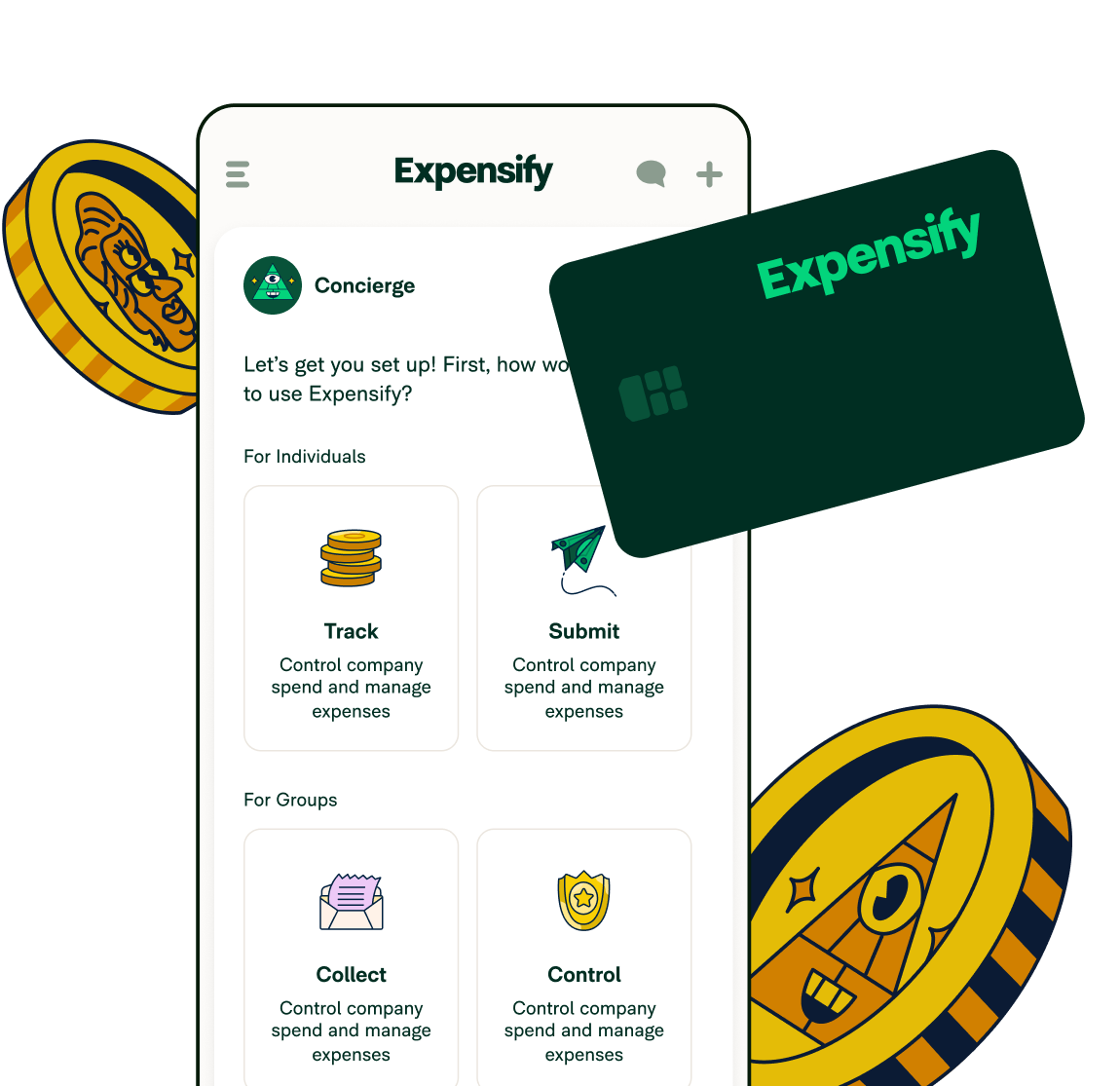12 unique money management tips for your business

If you’ve recently opened a small business, you deserve a round of applause (and probably a nap). Starting a business is quite the feat, especially if you’re still getting a handle on money management.
Implementing effective money management tips is crucial for your business's financial health and success. Money management for small businesses refers to the practices, strategies, and procedures used to handle a company's finances and keep the business profitable. This includes budgeting, setting goals, tracking expenses, monitoring income, and more.
So, while you might be relying on your stand-out products or excellent services to keep your business up and running, it’s essential to consider your finances to ensure steady cash flow.
If you’re new to the world of small business financial management, this can seem like a hefty undertaking — after all, you already have a lot on your plate. Ahead, we’ve broken down 12 money management tips for beginners to help you manage expenses, establish responsible financial habits, and lay the foundation for your business’s long-term success.
1. Create a detailed budget
Creating a detailed and realistic monthly budget is the first step to understanding your business’s financial big picture. Without one, you risk overspending, which can be detrimental to your business.
Trying to figure out where to start? Investing in a top-notch expense management app can help you simplify the process of tracking, analyzing, and planning your company's expenses, making budgeting more informed, accurate, and proactive.
This is just one of many essential money management tips to keep your business's finances in check. Let’s keep the ball rolling!
2. Track company spend
Understanding where every penny goes is essential. If you’re not sure how much you’re spending — or what you’re spending money on — it becomes that much easier to overspend, making money management for your small business much more difficult.
Regularly review all business-related expenses to ensure you're within your budget. This proactive approach prevents overspending and identifies wasteful expenditures. You can also adopt software like Expensify to track and manage spend, so you can ditch manual processes and paper receipt books — rest assured that you always know where your money is going.
3. Beat your deadlines
Missed payment deadlines are a surefire way to rack up late fees, accumulate debt, and set your business back financially. If you're unsure of a bill's due date, you may not have enough money to pay it on time. This can impact your business credit and relationships with vendors.
Expensify’s bill pay app takes the struggle out of paying your bills by automating the entire process. Instead of manually keeping track of each deadline, you can schedule all your payments in one place and cross “worry about deadlines” off of your to-do list.
4. Opt for a corporate card
Managing business finances is so much easier when you can put all your business expenses on one card. Corporate cards for employees automate your expense management process, improve cash flow control, and help you build credit. Plus, opting for a company card allows you to have more flexibility over your spending so you can jump on opportunities worry-free.
Consider choosing a card that offers cash-back options so you can earn money while you spend, and check out our savings calculator to get a glimpse at what you could save with the Expensify Card.
5. Keep business and personal spending separate
Have you ever heard the saying “Don’t mix business with pleasure”? The same is true for money management for your small business. Mixing your personal and business funds clutters your expense reports and confuses your budget, inhibiting you from gaining a clear picture of your business’s financial landscape.
Opting for a company card, as we mentioned above, is a great way to begin this necessary separation. By keeping all company spending on one card, you can avoid the tedious task of untangling your personal expenses from your business budget, which saves you time and money down the line.
6. Manage debt wisely
While taking out small business loans is commonplace when starting a new business, you should try to avoid taking on unnecessary debt. The high interest rate from business loans can add up quickly and force you to dip into your savings, and multiple loans and missed payments can negatively affect your business’s credit.
To get any existing debt under control, prioritize paying off high-interest debts first to reduce overall costs, consider consolidating multiple loans to simplify repayments, and regularly analyze company spending through insights and reporting to free up more funds for debt reduction.
7. Don’t neglect preaccounting
Nobody likes sorting through piles of receipts, logging billable hours, or tallying up mileage, but someone has to do it. This tedious process is known as preaccounting, and it lays the foundation for accountants to do their jobs and ensures your business stays on track.
To simplify this process, reduce the risk of manual error, and effectively manage business finances, opt for software that streamlines the preaccounting process for you. Expensify lets you snap a photo of your receipt, which the app automatically imports, categorizes (with or without accounting sync), and submits for you.
8. Time your purchases
Impulse spending, while fun, is never a good idea when it comes to money management. Make sure all necessary bills have been paid before you spend money on any non-essentials. Remember what we said about debt; if it can be avoided, it should be avoided.
Consider making any major expenses during sales or off-peak seasons. It’s also helpful to consider tax implications when purchasing big-ticket items, like computers or equipment, as certain business expenses can be written off — saving you money during tax season.
9. Diversify your revenue streams
This money management tip is often overlooked, but relying on a single stream of income can be risky. For a healthier cash flow, branch out by launching new products or services, tapping into new markets, or teaming up with partners for joint ventures and expanded reach.
As you begin this process, make sure to keep your business’s goals and buyer personas top of mind. Diversifying too quickly or without a clear plan can cause confusion among your customers, which could deter them from making a purchase at all.
10. Implement effective invoicing and collections strategies
At the end of the day, the success of your business relies on whether or not you’re getting paid by your customers. Implementing an effective invoicing strategy is the key to ensuring you’re being compensated fairly and on time so you never have to haggle for a payment again.
To set the precedent for prompt payments, make sure you send out invoices early. This gives clients plenty of time to settle up and smooth over any hiccups ahead of crunch time. Invoicing software can streamline this process by automatically creating and processing invoices and collecting payments from clients.
11. Have an emergency fund
You can effectively manage your expenses and follow each of these money management tips to a T and accidents can still happen. In situations of financial uncertainty, an emergency fund is your safety net.
Set aside a fraction of profits to this fund, reserved strictly for unplanned setbacks, to offer some financial cushioning during unpredicted downturns. Account for this in your budget, and remember to regularly add to this fund each month.
12. Regularly assess your finances
As your business grows and shifts, so will your finances. Set aside time each quarter (and maybe a little more time at the end of the year) to reassess your business’s goals, gauge performance, and update your budget accordingly through a thorough situational analysis. Staying alert and agile will help you keep up with an ever-changing market.
To help you stay light on your feet and adjust as needed, choose an expense reporting app that offers a range of features, like easy-to-use integrations, real-time reports, and a user-friendly interface. By automating your expense tracking, you can ditch manual methods and easily update your financial plan in just a few clicks.
Common questions about money management
-
Money management is important for business because it helps minimize risk, maximize profits, and drive sustainable growth. Proper money management ensures that business owners have the funds to operate, expand, and weather any financial storms, ensuring no setback is detrimental.
-
The 50-30-20 rule of money management is a guideline for personal finance. This guideline recommends that 50% of your income should go to necessities, 30% to wants, and 20% straight into savings.
While this rule was designed primarily for individuals, businesses can adapt it in ways that suit their financial needs by strategically allocating their funds between essential expenditures (like rent and wages), discretionary purchases (like staff meetups or new technology), and emergency funds.
It’s a practical approach to balance the necessities, indulge in some upgrades, and still safeguard your business with a financial nest egg for unforeseen events.
-
The four principles of money management are income, spending, saving, and investing. We’ll break it down below.
Income: Know what's coming in. It's the starting point of all financial planning.
Spending: Be mindful of where your money goes. Budget and track to ensure you live within your means.
Savings: Always pay yourself first. Secure a portion of your income for rainy days and future plans.
Investing: Grow your wealth. Find opportunities where your money can work for you.
While primarily a guide for individuals, businesses can translate these principles to manage revenue, control expenses, maintain a safety net, and seek growth opportunities.
Simplify money management with Expensify
Money management doesn't have to be daunting. Expensify helps you get a handle on your expenses so your finances become streamlined and intuitive.
If you're looking for a smoother, more efficient way to manage your money, Expensify’s got your back. Drop your info below and let us help your business thrive.
Expensify customers have seen a net 6x ROI growth
Numbers don’t lie. Sign up today to see how much you can grow when you work with us.
Expensify values your privacy. We’ll never sell your personal information to others.









